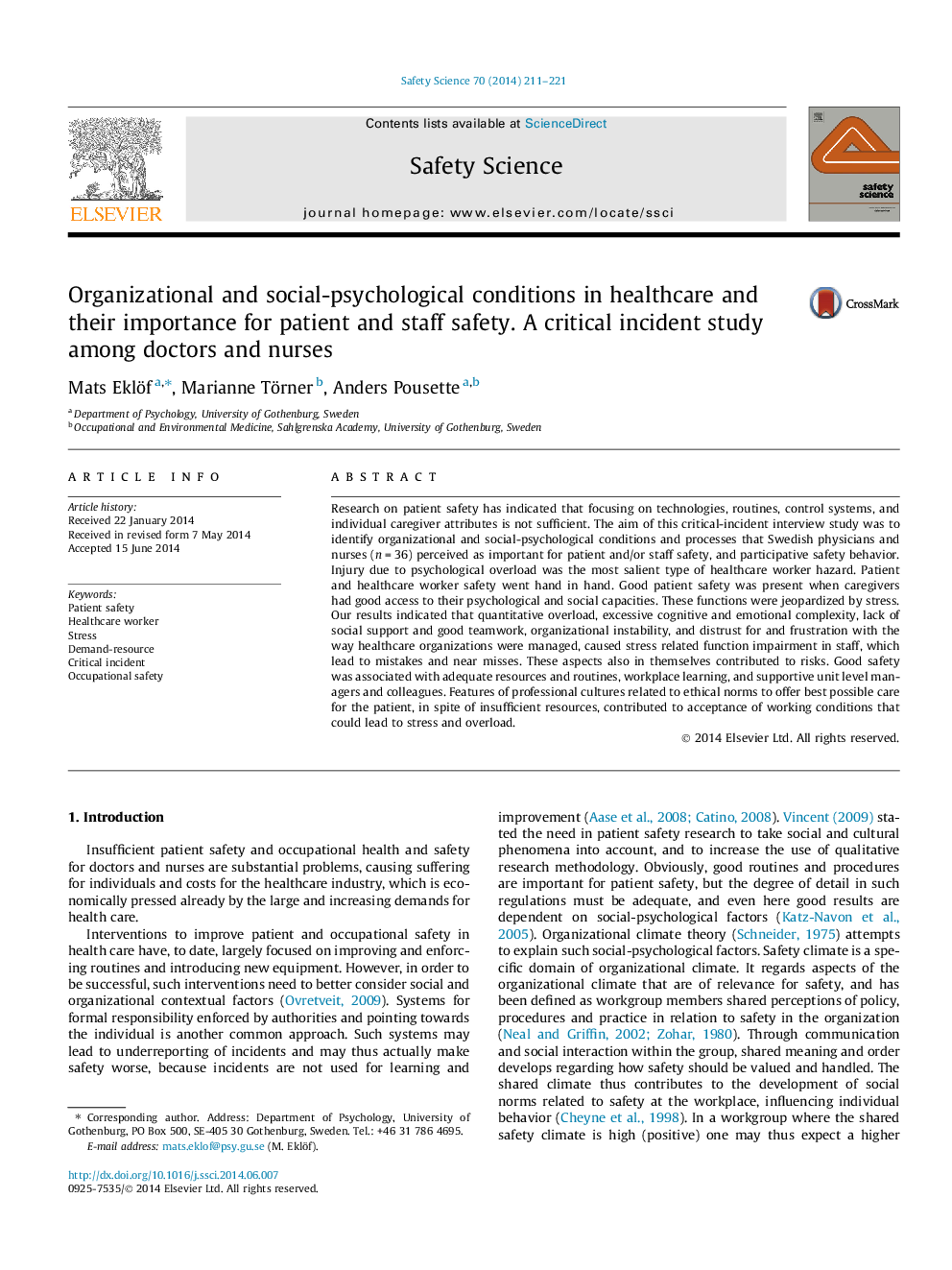| Article ID | Journal | Published Year | Pages | File Type |
|---|---|---|---|---|
| 6976100 | Safety Science | 2014 | 11 Pages |
Abstract
Research on patient safety has indicated that focusing on technologies, routines, control systems, and individual caregiver attributes is not sufficient. The aim of this critical-incident interview study was to identify organizational and social-psychological conditions and processes that Swedish physicians and nurses (n = 36) perceived as important for patient and/or staff safety, and participative safety behavior. Injury due to psychological overload was the most salient type of healthcare worker hazard. Patient and healthcare worker safety went hand in hand. Good patient safety was present when caregivers had good access to their psychological and social capacities. These functions were jeopardized by stress. Our results indicated that quantitative overload, excessive cognitive and emotional complexity, lack of social support and good teamwork, organizational instability, and distrust for and frustration with the way healthcare organizations were managed, caused stress related function impairment in staff, which lead to mistakes and near misses. These aspects also in themselves contributed to risks. Good safety was associated with adequate resources and routines, workplace learning, and supportive unit level managers and colleagues. Features of professional cultures related to ethical norms to offer best possible care for the patient, in spite of insufficient resources, contributed to acceptance of working conditions that could lead to stress and overload.
Related Topics
Physical Sciences and Engineering
Chemical Engineering
Chemical Health and Safety
Authors
Mats Eklöf, Marianne Törner, Anders Pousette,
